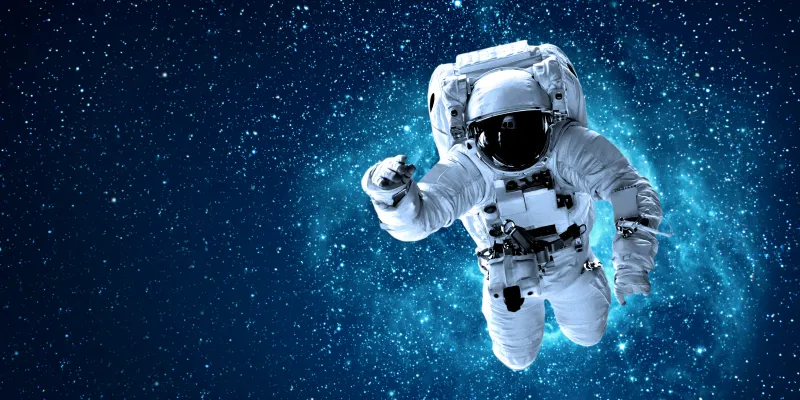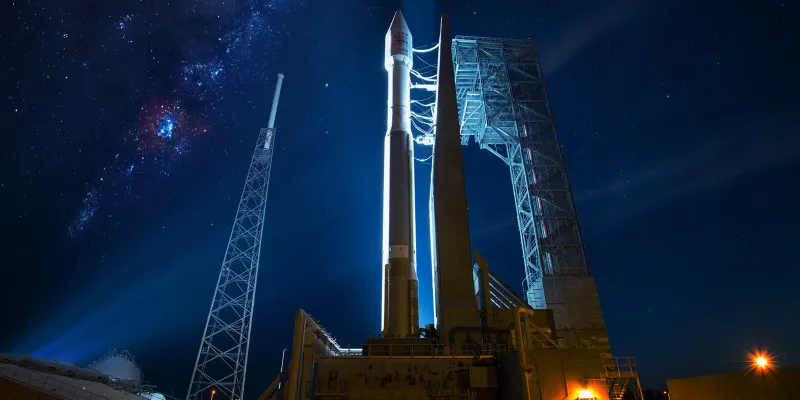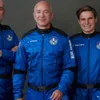A holiday in space? Why public and private players are betting on space tourism for future commercial opportunities
Billionaire entrepreneurs Sir Richard Branson and Jeff Bezos took trips to the edge of space in rockets built by their own space companies, opening up the doors to space tourism. In fact, public and private players are betting on this as a commercial opportunity in the future.
Who doesn’t like a holiday? You can just pack your bags and travel — across your state, country, and even go abroad. There are so many places to visit and too little life in us to see them all. But have you ever thought of a holiday in space?
From the very first astronaut Yuri Gagarin’s entry into space in 1961, many have dreamed of going to space. But, for most of us, it would be unimaginable as a visit to space means years of rigorous training to become an astronaut.
However, not anymore. Today, technological advances have opened up possibilities for non-astronauts to visit space as well.
In fact, earlier this July, billionaire entrepreneur Sir Richard Branson’s maiden trip to suborbital space on Virgin Galactic's rocket ship Unity 22 marked the first event in space tourism’s history.

Jeff Bezos' trip to space [Image Credit: Blue Origin]
In the same month, Jeff Bezos, along with his brother Mark Bezos, 82-year-old pilot Wally Funk, and 18-year old Oliver Daemen visited the Kármán line, 100 km above the ground, recognised as the boundary between Earth's atmosphere and outer space.
The team used New Shepard, Blue Origin's launch vehicle, a company Bezos himself launched in 2020, for the 10-minute mission.
While space tourism is at a nascent stage, it is expected to become a huge commercial opportunity in the future. However, there are issues related to costs, training, legal, and policy framework that need to be addressed first.
A new perspective
Speaking at an online event organised by SSERD (Society for Space Education, Research and Development) to celebrate World Space Week, Karin Nilsdotter, CEO of Spaceport, Sweden, and a future astronaut, said that governments and private organisations working on advanced technologies, reusable rockets, and spaceships, will facilitate space tourism.

Image Credit: SSERD
“Like an airplane, these spaceplanes or spaceships will have private passengers and business passengers. So, one can fly as a space tourist, professional astronaut, researcher, educator. I think this is going to have an unforeseen impact. When we enable people to go to missions that have not been necessarily trained for a certain task, the creative processes will be released.”
She added, “Most people who have gone to space, talk about the overview effect. Like when one gets to see the Earth from space and cannot see any borders or differences between people, colour, and one sees the world as one. That perspective and creative process that is going to come out from an experience like this is going to have a huge impact.”
In a conversation with YourStory, Srinath Ravichandran, Co-Founder and CEO, , says that space tourism can become “a huge commercial opportunity.”
“Besides being purely recreational, I believe it is also going to inspire many people to work on space technology, save our planet as we see it from a distance, and also inspire people to dream and set tall goals,” he adds.

Representational Image. [ Image Credit: Shutterstock]
Challenges to be addressed
On New Shepard, accompanying Bezos was Oliver Daemen, the first paying space tourist. Oliver, who is now studying to obtain a private pilot’s license, won the online auction for the very first seat on New Shepard at a whopping $28 million.
This is not a surprise as a trip to space can be extremely expensive. In the beginning, it might be affordable only by the extremely wealthy. However, stakeholders believe that in the future, the costs might come down as several players — both private and public — are betting on crewed missions and space tourism.
Srinath says that India will also participate in space tourism in the future, adding that it will become a common service as prices to access to space is coming down across the world with the technology required getting better.

Representational Image [ Image Credit: Shutterstock]
In India, ISRO is looking to launch its maiden human spaceflight Gaganyaan sometime in 2023. The much-awaited Gaganyaan mission will carry three crew members to low earth orbit. The programme is aimed at opening up research and development opportunities within the country in niche science and technology domains.
However, there are uncertainties around the legalities and policy framework as well.
At the SSERD event, Dr Rajeswari Pillai Rajagopalan, Director of the Centre for Security, Strategy, and Technology (CSST) at Observer Research Foundation (ORF), explained that while technology developments for space tourism are taking place, debate on policies, rules, and regulations are yet to happen.
She asked if rules and regulations are keeping up with the tech development in the segment, indicating that there is a need for companies to ensure that their technology is absolutely safe for the participants.
Meanwhile, according to Dr Shreya Santra, Assistant Professor, Dept. Aerospace Engineering, Tohoku University, the technology readiness is also not there yet. Issues related to power resources, accommodation for space travellers, etc., are still unaddressed.
“Space tourism is extremely important. However, with more countries, private, and public sector players entering this domain, the need for rules of the road is very important. Without it, this will be very dangerous. There will be a lot of difficulties related to liabilities, rescue agreements, in case of accidents. We will see many players, countries, and stakeholders enter this segment but only increases the urgency to come up with regulations to regulate the sector. But it is a very inspirational thing for the next generation,” added Dr Rajeswari.
So, are you ready for a holiday in space?
Edited by Saheli Sen Gupta










